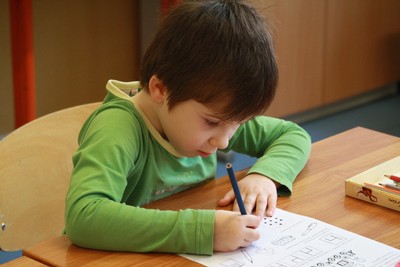AUDITORY AND VISUAL PERCEPTION OF DYSLEXIC LEARNERS
by John F.

Dyslexic learners can have difficulties with mastering written language. For some of them oral language can be also too complicated. The more differences between written and spoken words, the more difficulty with learning them.
Main mistakes are the following:
- phonic writing (e.g. cheese / “cziz”; book / “buk”)
- mirrored writing (b/d; p/g)
- letters replaced by similar ones (w/m/n; p/b/g/d)
- letters written in the wrong order, omitted or added (e.g. mouse / “muose”; chess / “ches”; shop/“schop”)
Besides, these children read slowly, because they have difficulties with accurate and fluent word recognition.
Lack of good auditory perception and processing causes also that dyslexic learners find pronunciation difficult, especially long words. They cannot see differences between minimal pairs (e.g. cut / cat; foot / food). Recognizing and producing rhymes is almost impossible. Therefore, it appears that learning pronunciation by imitation is hindered.